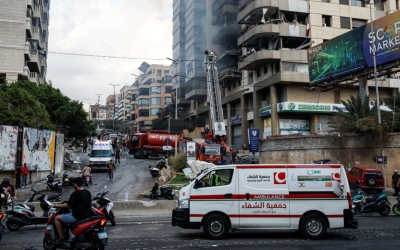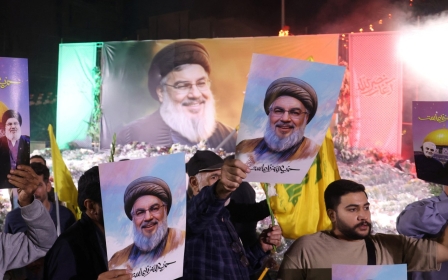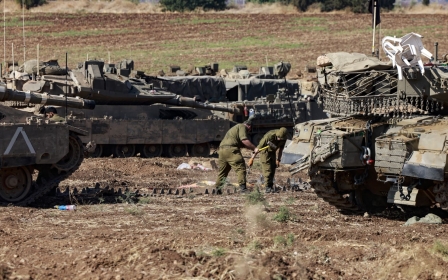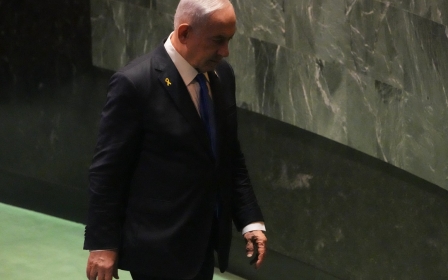Hezbollah kills at least eight Israeli soldiers after south Lebanon infiltration attempt
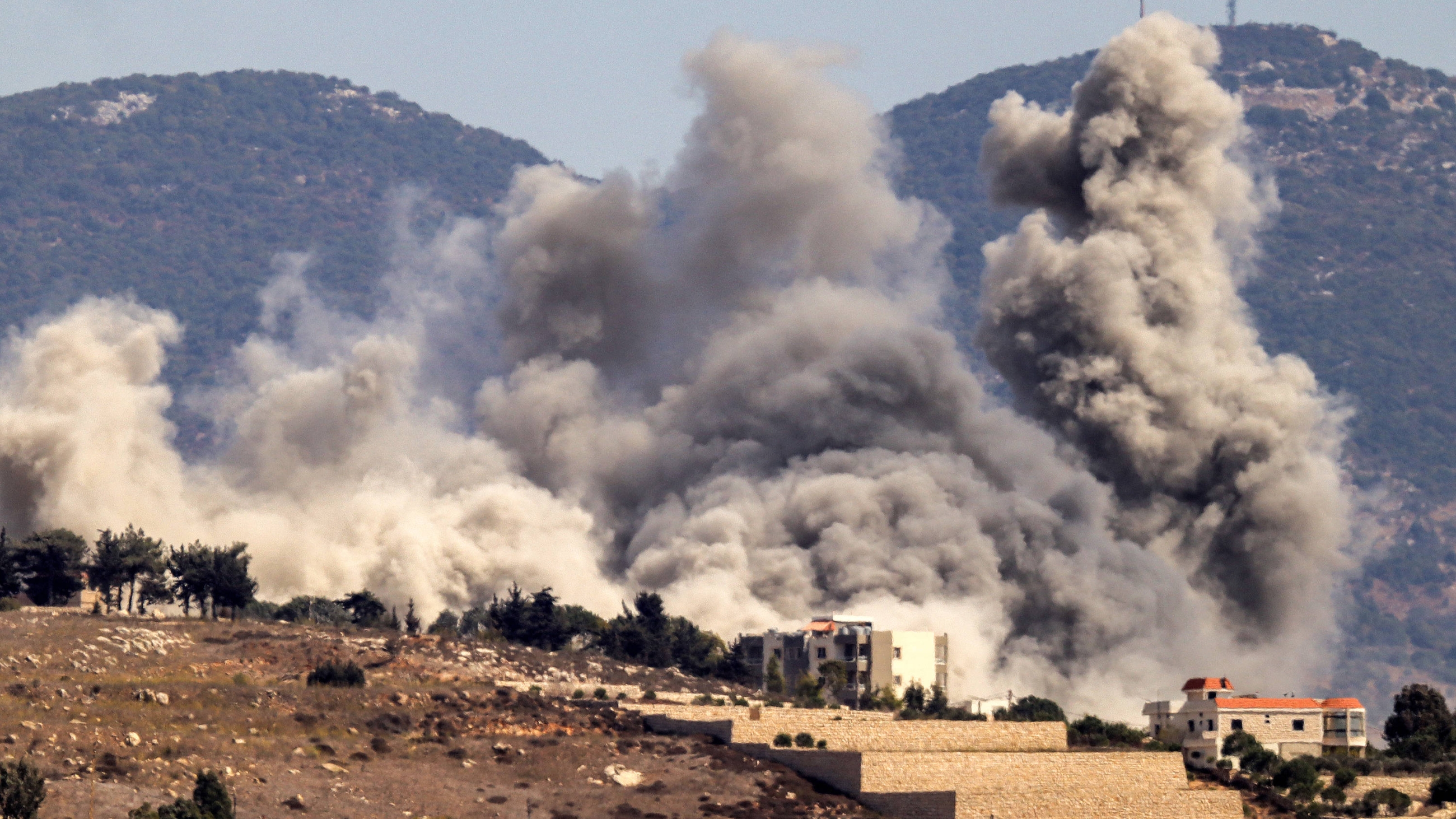
Eight Israeli soldiers have been killed in combat with Hezbollah in south Lebanon, the Israeli military said in a statement on Wednesday. Three of those killed are commanders, and seven other soldiers are critically wounded.
Hezbollah clashed with Israeli troops infiltrating the southern Lebanese border town of Maroun al-Ras, after earlier pushing back an attempted infiltration elsewhere.
The group destroyed three Israeli Merkava tanks with guided missiles as they approached near the town, it said in a statement.
In a separate statement it said that several Israeli troops were killed and wounded in combat in both Maroun al-Ras and Odaissah, where its fighters fought off an incursion by Israeli infantry soldiers in the morning, forcing them to retreat.
Sky News Arabia quoted an Israeli source as saying that 14 Israeli soldiers were killed in battle on Wednesday.
New MEE newsletter: Jerusalem Dispatch
Sign up to get the latest insights and analysis on Israel-Palestine, alongside Turkey Unpacked and other MEE newsletters
The Lebanese army said in a statement that Israeli forces breached the demarcation line between Lebanon and Israel, known as the Blue Line, moving around 400m into Lebanese territory, and then withdrew a short time later.
Hours earlier, Hezbollah said it conducted a series of attacks on Israeli troops stationed along the boundary with Lebanon, targeting three different military positions with rockets and artillery fire, achieving "direct hits".
Hezbollah's media chief Mohammad Afif said the group has enough fighters, weapons and ammunition to push back Israeli forces.
Israeli Telegram pages said rescue helicopters were seen transporting soldiers from the northern border to hospitals in Haifa after the attacks. There was no immediate comment from the Israeli military.
Israeli journalist Meron Rapoport told Middle East Eye that it was too early to say whether the heavy Israeli casualties would deter a military invasion but added that continued losses may have an impact on the Israeli military and Prime Minister Benjamin Netanyahu's plans.
"The war in Lebanon is not only Netanyahu's war, it's also the army's war and the great majority of Israelis support it. They feel that it is possible to win, that Hezbollah is weak and and that Israel can achieve some goals." He said, adding:
"Now this early result, in which eight Israeli officers and soldiers were killed almost immediately after the ground invasion may remind people in Israel of the traumas of Israel's previous invasion of Lebanon in 1982 and in 2006."
The clashes come as the Israeli military said that regular infantry and armoured units were joining ground operations in southern Lebanon, supported by the air force and artillery fire, a day after Iran attacked Israel with a barrage of ballistic missiles.
On Wednesday afternoon, Hezbollah said it had targeted an Israeli unit with an explosive device near the southern border village of Yaroun, a few kilometres from Maroun al-Ras.
"As the Israeli enemy army tried to sneak around the village of Yaroun... [Hezbollah] fighters surprised them by detonating an explosive device," it said, reporting Israeli casualties.
Mobilisation of forces
Since announcing its plans for a ground invasion of Lebanon on Monday evening, Israel has described its operation as one of "limited" commando raids. However, the addition of infantry and armoured troops from the 36th Division, including the Golani Brigade, the 188th Armoured Brigade and the 6th Infantry Brigade, suggests that the operation has moved beyond that.
The Israeli military has claimed that its ground operation is primarily focused on dismantling Hezbollah tunnels and other infrastructure along the border.
On Tuesday, sources close to Hezbollah told Middle East Eye that Israeli forces entered tunnels in a small area on the border without any intervention from the group's elite Radwan forces.
"This was done intentionally to avoid revealing the military plans of Hezbollah forces in the early stages of the battle," he said.
The Israeli military on Wednesday ordered the residents of 24 towns in south Lebanon to leave their homes and head north of the Awali River, warning of impending attacks on the areas.
Some of the towns mentioned are on the outskirts of the city of Tyre, more than 20km north of the border.
Israeli calls on Lebanese to leave towns in south Lebanon and in Beirut’s suburbs have become an almost daily occurrence. On Tuesday, Israel warned the residents of 29 villages to leave as its army prepares to comb the area.
At least 1.2 million people have been displaced by Israeli attacks across Lebanon.
Israel also continued to bomb areas across south Lebanon on Wednesday and conducted strikes in Beirut's southern suburbs, locally known as Dahiyeh, with at least a dozen raids.
Middle East Eye delivers independent and unrivalled coverage and analysis of the Middle East, North Africa and beyond. To learn more about republishing this content and the associated fees, please fill out this form. More about MEE can be found here.


